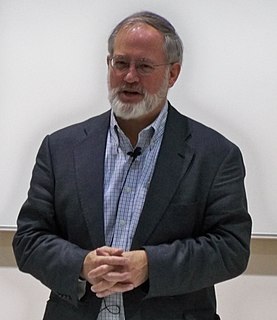A Quote by Robin Marantz Henig
When a trait is universal, evolutionary biologists look for a genetic explanation and wonder how that gene or genes might enhance survival or reproductive success.
Quote Topics
Related Quotes
When one becomes a liberal, he or she pretends to advocate tolerance, equality and peace, but hilariously, they’re doing so for purely selfish reasons. It’s the human equivalent of a puppy dog’s face: an evolutionary tool designed to enhance survival, reproductive value and status. In short, liberalism is based on one central desire: to look cool in front of others in order to get love. Preaching tolerance makes you look cooler, than saying something like, 'please lower my taxes.'
Considering that we live in an era of evolutionary everything---evolutionary biology, evolutionary medicine, evolutionary ecology, evolutionary psychology, evolutionary economics, evolutionary computing---it was surprising how rarely people thought in evolutionary terms. It was a human blind spot. We look at the world around us as a snapshot when it was really a movie, constantly changing.
People are always invoking evolutionary psychology for everything. "Why do men hang around asking women out? Oh, to improve their reproductive success," every damn thing - religion, art - it can all be explained by evolutionary psychology. But in our hearts we know that evolutionary psychology is only sort of accurate, because it really doesn't capture what's most interesting about our lives.
The theory I'm putting forward here is that storytelling is a genetic characteristic in the sense that early human hunters who were able to organize events into stories were more successful than hunters who weren't—and this success translated directly into reproductive success. In other words, hunters who were storytellers tended to be better represented in the gene pool than hunters who weren't, which (incidentally) accounts for the fact that storytelling isn't just found here and there among human cultures, it's found universally.
We can now determine, easily and relatively cheaply, the detailed chemical architecture of genes ; and we can trace the products of these genes ( enzymes and proteins ) as they influence the course of embryology . In so doing we have made the astounding discovery that all complex animal phyla - arthropods and vertebrates in particular - have retained, despite their half-billion years of evolutionary independence, an extensive set of common genetic blueprints for building bodies.
Evolutionary biologists often appeal to parsimony when they seek to explain why organisms "match" with respect to a given trait. For example, why do almost all the organisms that are alive today on our planet use the same genetic code? If they share a common ancestor, the code could have evolved just once and then been inherited from the most recent common ancestor that present organisms share. On the other hand, if organisms in different species share no common ancestors, the code must have evolved repeatedly.
Epigenetics doesn't change the genetic code, it changes how that's read. Perfectly normal genes can result in cancer or death. Vice-versa, in the right environment, mutant genes won't be expressed. Genes are equivalent to blueprints; epigenetics is the contractor. They change the assembly, the structure.




































